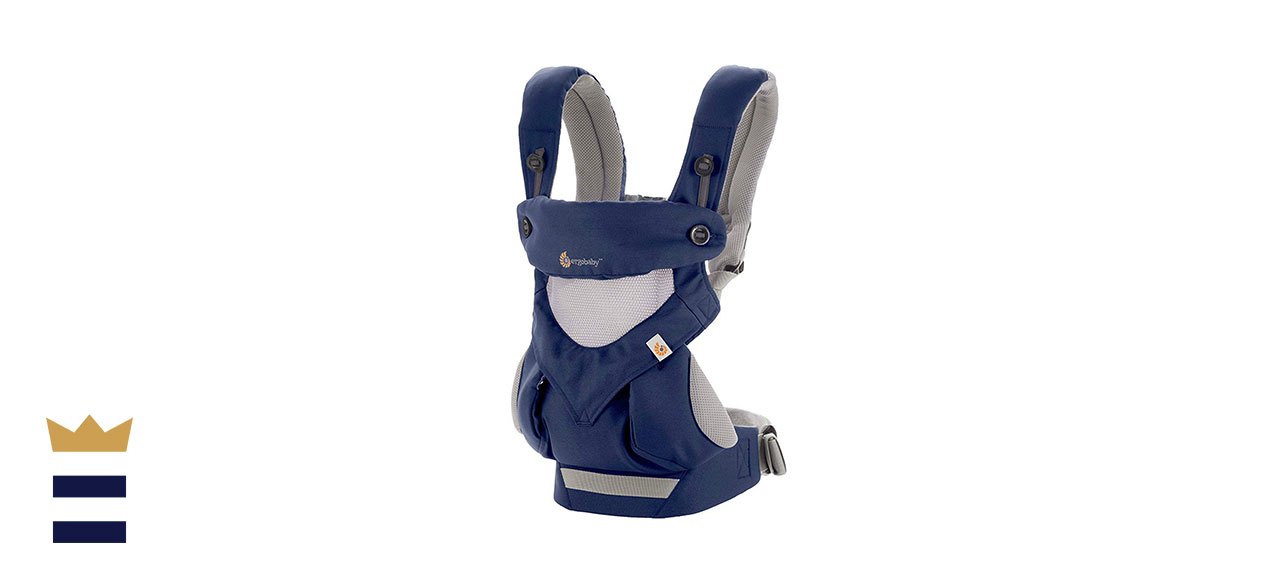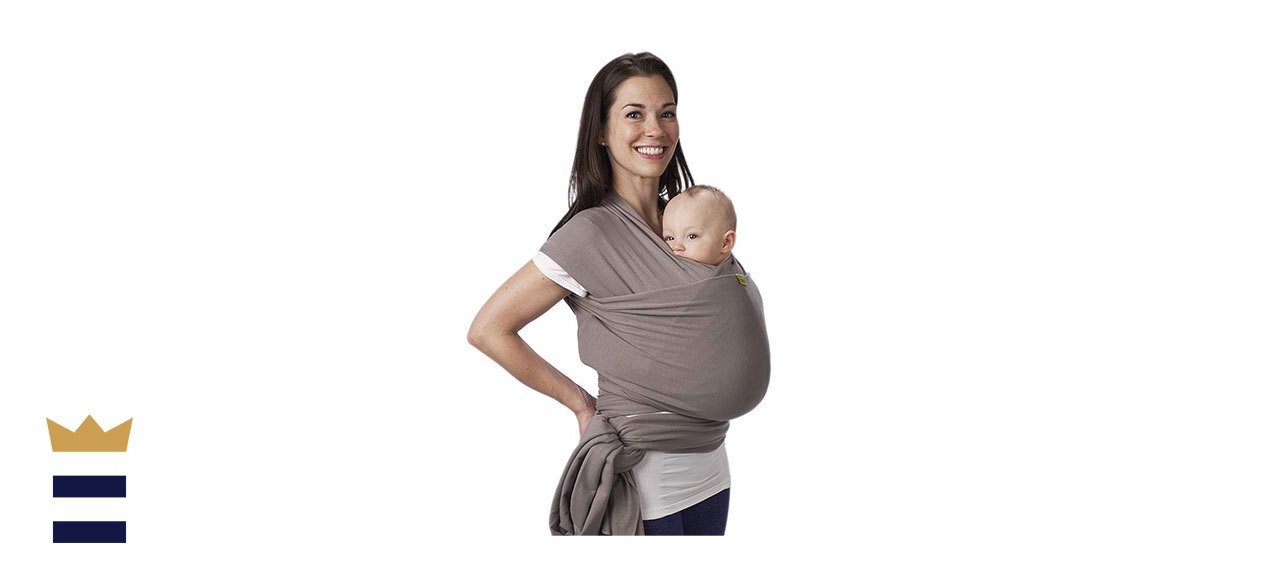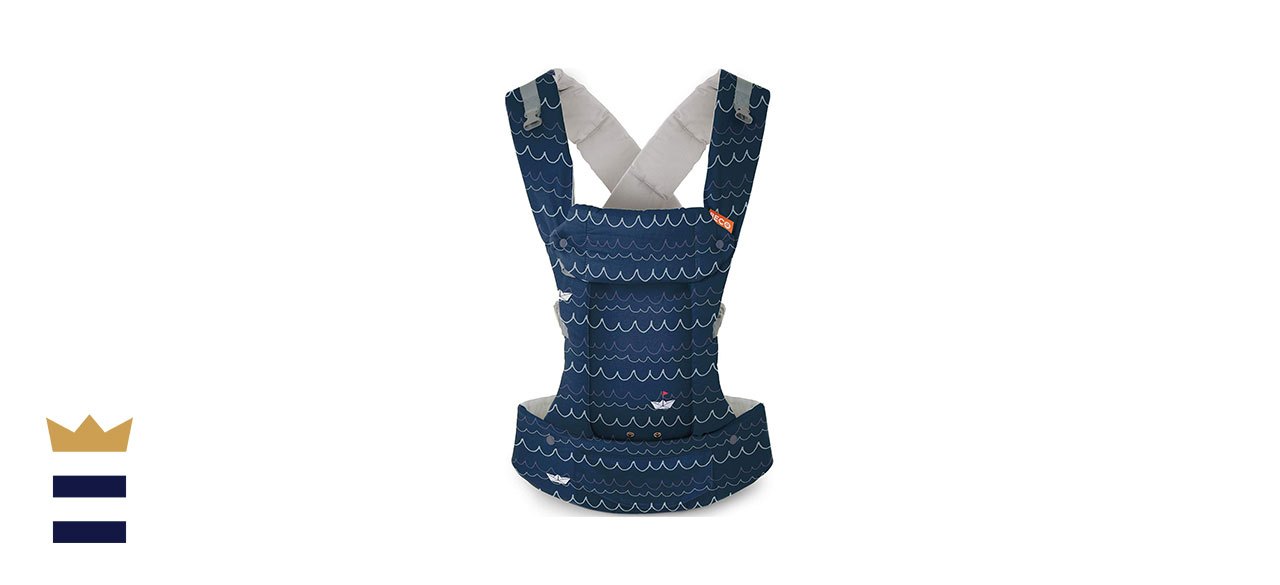Which baby carrier is best?
A great number of parents are turning to baby carriers for day-to-day use rather than the traditional stroller. Using a baby carrier promotes bonding with your little one, and it keeps your hands free — you can eat meals with both hands and look after any older children you might have. Our top baby carrier comes from Ergobaby, a trusted name in the world of baby carriers. We chose it for its comfort for both parties and its ease of use.
What to know before you buy a baby carrier
Structured carriers vs. wraps
The two most common types of baby carriers are soft structured carriers and wraps. Soft structured carriers are extremely easy to put on and adjust. They can usually be worn on the front or back, and you can choose to face your baby outward or inward. The downside is that they can sometimes be uncomfortable for shorter parents, and the best models are often expensive.
Wraps are hugely versatile with many different configurations and ways of tying them. This is ideal for parents of all shapes and sizes. What’s more, wraps are inexpensive. The main trouble is that they’re more of a hassle to put on than soft structured carriers and require a bit of practice to get right.
You can also find sling carriers (such as ring slings) and backpack carriers for long walks or hikes with older babies and toddlers, but these are less common.
Front vs. back carrying
Decide whether you want to carry your baby on your front or your back. Some allow you to do both, but others are front only or back only. In general, back carrying is only recommended for older babies and toddlers. Some carriers are suitable for back carrying once your baby can sit up independently, whereas others don’t recommend back carrying before 12 months of age.
Inward facing vs. outward facing
When carrying your baby on your front, you can choose to face them inward (toward you) or outward. Don’t attempt outward-facing carrying until your baby is at least 6 months old.
What to look for in a quality baby carrier
Adjustability
Choose a baby carrier that can be adjusted to suit your height. Ideally, it should be fairly simple to adjust.
Washability
Babies and toddlers might be cute, but they’re certainly messy. If possible, opt for a baby carrier that’s machine washable.
How much you can expect to spend on a baby carrier
Inexpensive baby carriers start at $15, including some very basic soft structured carriers. Wrap carriers in the $15-$30 price range are often just as good as pricier options, but structured carriers won’t be as comfortable or durable.
Expect to pay $40-$80 for high-end wraps and slings and midrange structured options. High-end soft structured carriers and baby backpacks can cost $100-$300.
Baby carriers FAQ
Are there any safety concerns related to baby carriers?
A. If incorrectly used, there’s a chance of babies developing hip dysplasia from carriers. Make sure you choose a model that lets your baby’s legs sit in the M-position to help avoid hip problems. What’s more, your baby’s face should always be tilted upward. If a baby is in a chin-to-chest position, it could restrict her airway.
Can you nurse your baby while they’re in the carrier?
A. It’s certainly possible to nurse a baby in a carrier, but there is a bit of a knack to it, and it’s easier in some carriers than others. Practice at home before you try it out and about. Also check that your baby can breathe easily while nursing in a carrier, and return them to their regular position as soon as they’ve finished eating.
What’s the best baby carrier to buy?
Top baby carrier
What you need to know: A soft structured carrier that’s extremely easy to use — just strap it on and you’re ready to go.
What you’ll love: It’s well-padded for the comfort of both wearer and child but breathable enough for warm-weather use. It allows four different carrying positions.
What you should consider: You’ll need to buy the infant insert separately for babies younger than 4 months old.
Where to buy: Sold by Amazon
Top baby carrier for the money
What you need to know: An affordable wrap carrier made from soft, comfortable material, it is extremely versatile, although it does take some getting used to.
What you’ll love: Suitable from birth up to 35 pounds, it is made from breathable cotton and is machine washable. You can wear it in a variety of ways.
What you should consider: It can be tricky to tie correctly until you get the hang of it.
Where to buy: Sold by Amazon
Worth checking out
What you need to know: This nicely padded and smart-looking carrier is easy to put on and highly adjustable. It is suitable for babies and toddlers between 7 and 35 pounds.
What you’ll love: Crossover straps are comfortable and distribute weight evenly. It is easy to adjust for parents of differing heights. The small pocket on the waistband is a handy extra.
What you should consider: The belt clip can be a bit stiff.
Where to buy: Sold by Amazon
Sign up here to receive the BestReviews weekly newsletter for useful advice on new products and noteworthy deals.
Lauren Corona writes for BestReviews. BestReviews has helped millions of consumers simplify their purchasing decisions, saving them time and money.
Copyright 2021 BestReviews, a Nexstar company. All rights reserved.






